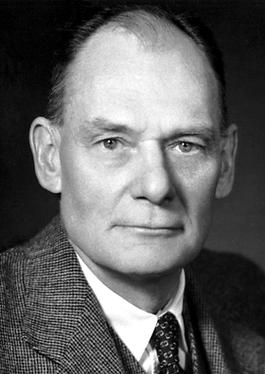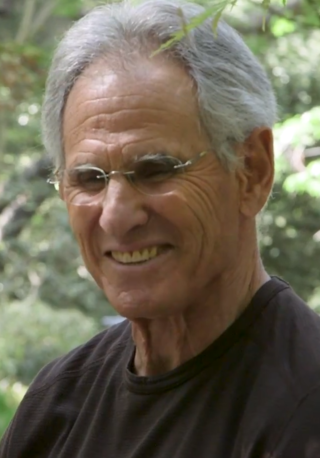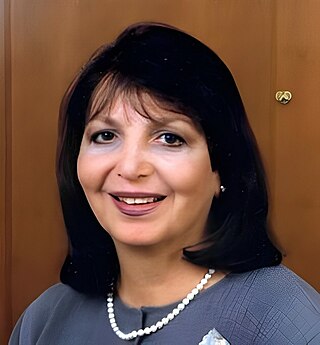Related Research Articles

Suffering, or pain in a broad sense, may be an experience of unpleasantness or aversion, possibly associated with the perception of harm or threat of harm in an individual. Suffering is the basic element that makes up the negative valence of affective phenomena. The opposite of suffering is pleasure or happiness.

John Franklin Enders was an American biomedical scientist and Nobel Laureate. Enders has been called "The Father of Modern Vaccines."

Morris Edward Opler, American anthropologist and advocate of Japanese American civil rights, was born in Buffalo, New York. He was the brother of Marvin Opler, an anthropologist and social psychiatrist.
Arthur Michael Kleinman is an American psychiatrist, social anthropologist and a professor of medical anthropology, psychiatry and global health and social medicine at Harvard University.

Jon Kabat-Zinn is an American professor emeritus of medicine and the creator of the Stress Reduction Clinic and the Center for Mindfulness in Medicine, Health Care, and Society at the University of Massachusetts Medical School. Kabat-Zinn was a student of Zen Buddhist teachers such as Philip Kapleau, Thich Nhat Hanh, and Seung Sahn, and a founding member of Cambridge Zen Center. His practice of hatha yoga, Vipassanā and appreciation of the teachings of Soto Zen and Advaita Vedanta led him to integrate their teachings with scientific findings. He teaches mindfulness, which he says can help people cope with stress, anxiety, pain, and illness. The stress reduction program created by Kabat-Zinn, mindfulness-based stress reduction (MBSR), is offered by medical centers, hospitals, and health maintenance organizations, and is described in his book Full Catastrophe Living.
Joshua Philip Prager M.D., M.S. is an American physician. Prager specializes in pain medicine and is the executive director of Center for the Rehabilitation Pain Syndromes (CRPS) at UCLA Medical Plaza.
The Kolling Institute is located in the grounds of the Royal North Shore Hospital in St Leonards, Sydney Australia. The institute, founded in 1920, is the oldest medical research institute in New South Wales.
Patrick J. McGrath, OC, FRSC FCAHS is a Canadian psychologist noted for his contribution to research on childhood pain.
Waldo Rudolph Wedel was an American archaeologist and a central figure in the study of the prehistory of the Great Plains. He was born in Newton, Kansas to a family of Mennonites.
Ghost sickness is a culture-bound syndrome among some indigenous peoples in North America and Polynesian peoples in which people are preoccupied with the deceased or consumed by pathological grief. Reported symptoms can include general weakness, loss of appetite, suffocation feelings, recurring nightmares, and a pervasive feeling of terror. The sickness is attributed to ghosts or, occasionally, to witches or witchcraft.
David W. Orme-Johnson is a former professor of psychology at Maharishi University of Management in Fairfield, Iowa. He is the author of over 100 papers investigating the effects of the Transcendental Meditation technique.

David Jay Julius is an American physiologist and Nobel Prize laureate known for his work on molecular mechanisms of pain sensation and heat, including the characterization of the TRPV1 and TRPM8 receptors that detect capsaicin, menthol, and temperature. He is a professor at the University of California, San Francisco.

Huda Akil is a Syrian-American neuroscientist whose research has contributed to the understanding of the neurobiology of emotions, including pain, anxiety, depression, and substance abuse. Akil and her colleagues are best known for providing the first physiological evidence for a role of endorphins in the brain and demonstrating that endorphins are activated by stress and can cause pain inhibition.

Devi Elizabeth Nampiaparampil is an American physician and researcher who specializes in preventing and treating chronic pain. She performs X-ray-guided invasive spinal procedures for pain, teaches medical students and trainees, comments on medical issues for various platforms, and appears on news and talk shows. She has appeared on the daytime soap opera General Hospital. Dr. Nampiaparampil also ran as for New York City Public Advocate in the November 2021 general election.
Robert Franz Schmidt was a German physiologist and professor emeritus. From 1982 until 2000 he was the director of the Institute of Physiology at the University of Würzburg.

Ruth A. Myers was known as the “grandmother of American Indian Education in Minnesota.” A persistent voice for American Indian children and their families, Myers focused on education policy. She focused on learning opportunities for American Indian children. She also worked for curriculum and resource materials that reflected the American Indian history and culture for all Minnesota learners.
Peter Sean Staats is an American physician, specializing in interventional pain medicine. He is the founder of the Division of Pain Medicine at the Johns Hopkins School of Medicine, and was the Division's chief for nearly a decade. He is a past president of the North American Neuromodulation Society, the New Jersey Society of Interventional Pain Medicine,the American Society of Interventional Pain Physicians ( ASIPP) the World Institute of Pain ( WIP), The Southern Pain Society.
Chi Ho Ban Tsui is a Canadian anesthesiologist known for medical innovation in the field of anesthesia. Examples include describing the Tsui Test and developing the StimuLong Sono-Tsui for ease of pediatric epidural placement. Recently along with his son, Dr. Jonathan Jenkin Tsui, Dr. Tsui developed a catheter-over-needle kit allowing a continuous catheter placement to be performed with the ease of a single shot during peripheral nerve blocks.
The European Society for Emergency Medicine (EUSEM) is an organisation promoting international emergency medicine in Europe. The society was founded at the International Conference on Emergency Medicine in May 1994 in London. EUSEM brings together over 30 European national societies of emergency medicine. EUSEM hosts pan-European emergency medicine training, examinations and awards. It also publishes the European Journal of Emergency Medicine, and organises annual scientific meetings.
The 2021 Nobel Prize in Physiology or Medicine was jointly awarded to the American physiologist David Julius and Armenian-American neuroscientist Ardem Patapoutian "for the discovery of receptors for temperature and touch." During the award ceremony on December 10, 2021, Nobel Assembly at Karolinska Institutet member Patrik Ernfors expressed:
"The 2021 Nobel Prize laureates have explained fundamental mechanisms underpinning how we sense the world within and around us. Our temperature and touch sensors are used all the time in every day of our lives. They continuously keep us updated about our environment, and without them even the simplest of our daily tasks would be impossible to perform."
References
- ↑ "David Morris". Colorado State University. Retrieved 4 September 2016.
- ↑ Hinnant, Charles H. (1994). "Steel for the mind": Samuel Johnson and critical discourse. University of Delaware Press. ISBN 9780874134926.